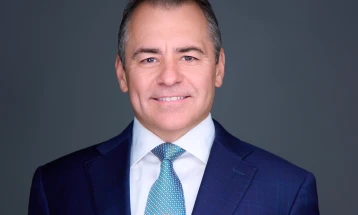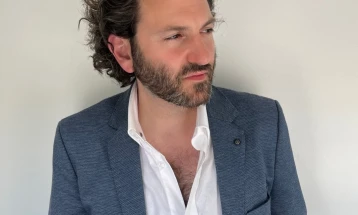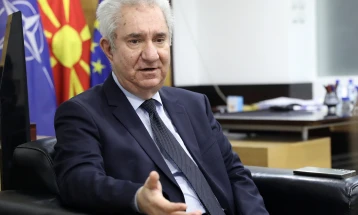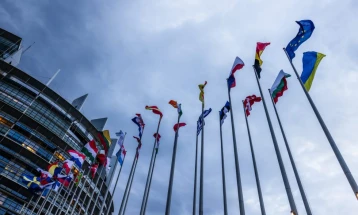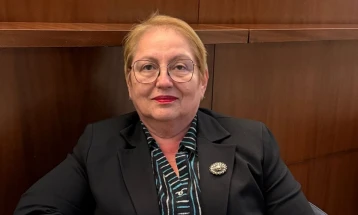Jan Lipavský op-ed: 25 years – Czechia in NATO
- NATO's expansion into Central and Eastern Europe was of greater significance and urgency than its architects could have imagined. What would Europe look like today if the leaders of the West at that time took 10 years to think it over? If Czechia, led by Václav Havel, did not make use of its newly acquired freedom, political capital, and determination to join the West? Perhaps NATO would never have found the courage to commit to the defense of Central Europe. Perhaps today we would fear that Western fatigue with Central Europe would prevail and that, in the interest of peace, the West would accept Russian influence or control of Riga, Warsaw, even Prague?
- Post By Nevenka Nikolik
- 17:15, 12 March, 2024
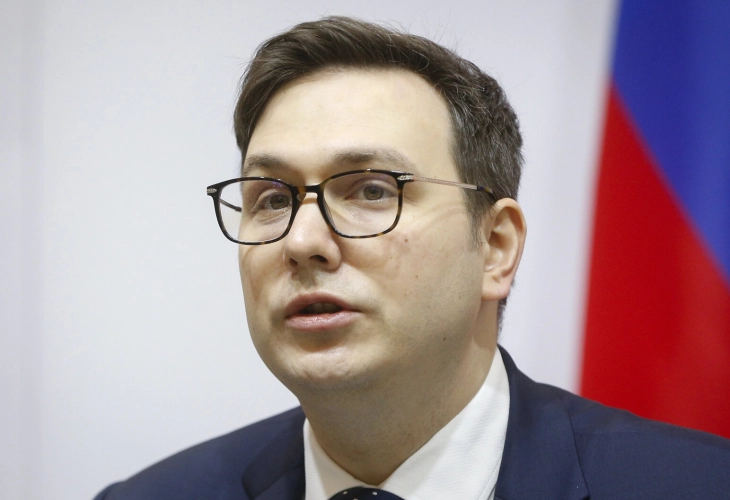
12 March 2024
"It is our common purpose, over time, to do for Europe's east what NATO has already helped to do for Europe's west. Steadily and systematically, we will continue erasing the line drawn in Europe by Stalin's bloody boot", said the then-Secretary of State, Madeleine Albright twenty-five years ago while welcoming the first new NATO members since the Cold War’s end.
Regrettably, there is a new line being drawn in Europe today – by a dictator of a different name who is not shy, however, of committing the same heinous crimes as the previous one.
A lesson from the past
Twenty-five years ago on March 12th, Czechia, Poland, and Hungary became the first countries from the former "Eastern Bloc" to join NATO. This event changed the course of history for both Czechia and NATO.
The successful integration of these three countries into NATO’s policies and structures helped open the door to other countries in Central, Eastern, and Southeastern Europe. As early as 2002, Prague hosted a NATO Summit where a decision was made on another wave of enlargement.
NATO's expansion into Central and Eastern Europe was of greater significance and urgency than its architects could have imagined. What would Europe look like today if the leaders of the West at that time took 10 years to think it over? If Czechia, led by Václav Havel, did not make use of its newly acquired freedom, political capital, and determination to join the West? Perhaps NATO would never have found the courage to commit to the defense of Central Europe. Perhaps today we would fear that Western fatigue with Central Europe would prevail and that, in the interest of peace, the West would accept Russian influence or control of Riga, Warsaw, even Prague?
We demonstrate our steadfast commitment to shared security through our daily diplomatic efforts, our active involvement in both current and historical Allied operations—such as those in the Western Balkans and the Middle East—and our unwavering support for Ukraine's defense, exemplified by initiatives like the recent ammunition programme.
The Russian invasion of Ukraine in 2014 and the subsequent escalation in 2022 served as a stark reminder of NATO's crucial role in collective defense. We are now preparing for a new chapter in the history of NATO Alliance. Ukraine, which has been bravely standing up to the Russian army finds itself in a perplexing situation. Despite not being integrated into NATO or the EU, Ukraine has sacrificed far more for Western values than any other country since the Second World War. We must not give up on our partner. We must offer it credible security guarantees.
In today's world, as authoritarian regimes pose threats to our security and way of life, we witness the consequences of a lack of rules. With doubts about the cohesion and future of the Alliance emerging from various places in Europe and the USA, it's clear that a stronger NATO is essential now more than ever. While the world has always been a complicated place, there comes a time when action is necessary. Waiting out a problem may seem easier, but it often leads to a dead end. Since 1999, Czechia has stood shoulder to shoulder with its Allies, and together, we forge ahead, paving the way forward.
Author: Jan Lipavský, Minister of Foreign Affairs of the Czech Republic
Photo: MIA archive


